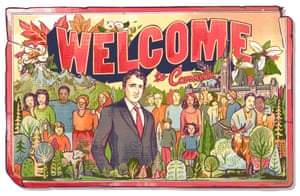D
Deleted member 427
Guest
W Kanadzie opublikowano raport dotyczący edukacji wczesnoszkolnej. Zaleca się w nim, aby wszystkie kanadyjskie dzieci rozpoczynały naukę w wieku dwóch lat.
Studium wskazuje na profity, jakie państwo i społeczeństwo zyskałoby w sferze socjalnej, gospodarczej i naukowej, gdyby do szkół trafiły dzieci w wieku dwóch lat.
Zdaniem autorów raportu, dzieci byłyby dzięki temu lepiej przygotowane do dalszej edukacji. Łatwiej uzyskiwałyby także promocje do kolejnych klas. Miałoby to również pozytywny efekt na ich przyszłe dochody i zdrowie.
Zmiana sprawiłaby, że matki miałyby lepsze warunki na rynku pracy. Szybciej przechodziłyby z urlopu macierzyńskiego z powrotem na pełen etat. Zyskałaby dzięki temu także gospodarka.
http://wiadomosci.onet.pl/swiat/eksperc ... omosc.html









